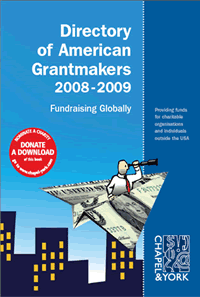Funder Feedback in the Real World
There has been quite a discussion in the sector recently about poor feedback from funders about failed bids, with some fundraisers demanding in rather highhanded tones that funders should always detail their reasons for rejection. This raises some interesting issues.
Of course it is frustrating for applicants, who may have spent hours or days preparing an application, to be told it has been rejected and to receive no insight into the reasons why. How are fundraisers to improve their performance if they are not told where they went wrong? It is important to learn the reasons why, in case these can be addressed in future bids.
For bids to small funders, many of which have no paid staff and are run by volunteers, there is simply not the capacity to offer meaningful feedback and we should not expect it.
For applications to larger funders, such as the major trusts, national lottery boards and statutory schemes, there does need to be a mechanism to provide meaningful feedback, given the time and effort involved in a bid. This is still not always the case, but has been improving over the last ten years.
What then can we do, if anything, to encourage funders to provide better feedback?
Firstly, verbal feedback can sometimes be gained by telephone, where you already have a relationship with the funders. If you prepared the ground for your bid by speaking to the funder beforehand (always good practice of course), you will have a much better chance of gaining meaningful feedback beyond the “limited funds” type of response.
Secondly, we can all do our part to lighten the load on funders by only applying to those where we have a good fit with the criteria. It is astonishing that funders still receive so many speculative bids outside their criteria. This situation is not helped by those fundraisers (sadly encouraged by some research providers) who insist on blasting out large volumes of generic bids, which may raise some money but achieve a low success rate and clog up the system with many ineligible bids. If charities all resisted the temptation to use the shotgun approach and stuck to the rifle shot, funders would have more time to provide better feedback.
Thirdly, in our dealings with funders, we can all stress the value of feedback, so that we can improve our performance and reduce the number of time wasting ineligible bids. This would be a welcome message for funders to hear.
Fourthly, we all need to be realistic about the amount of feedback funders can realistically give. Even those with paid staff are hard pressed with the task of assessing bids and monitoring grants, which understandably are higher priorities for them for them than giving feedback on failed bids.
Finally, if you are getting a lot of rejections and cannot get good feedback, what else can you do? A couple of suggestions – either ask an experienced fundraiser in another charity to review your bids and accounts or find a good trusts consultant to scrutinise your work and help you sharpen things up. Either way, this would be time or money well spent.



